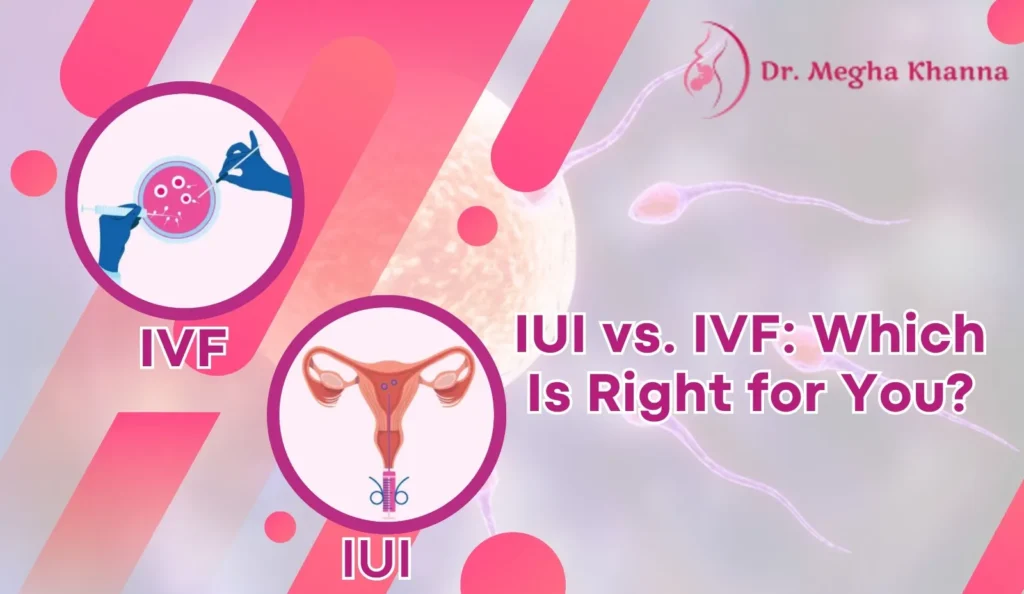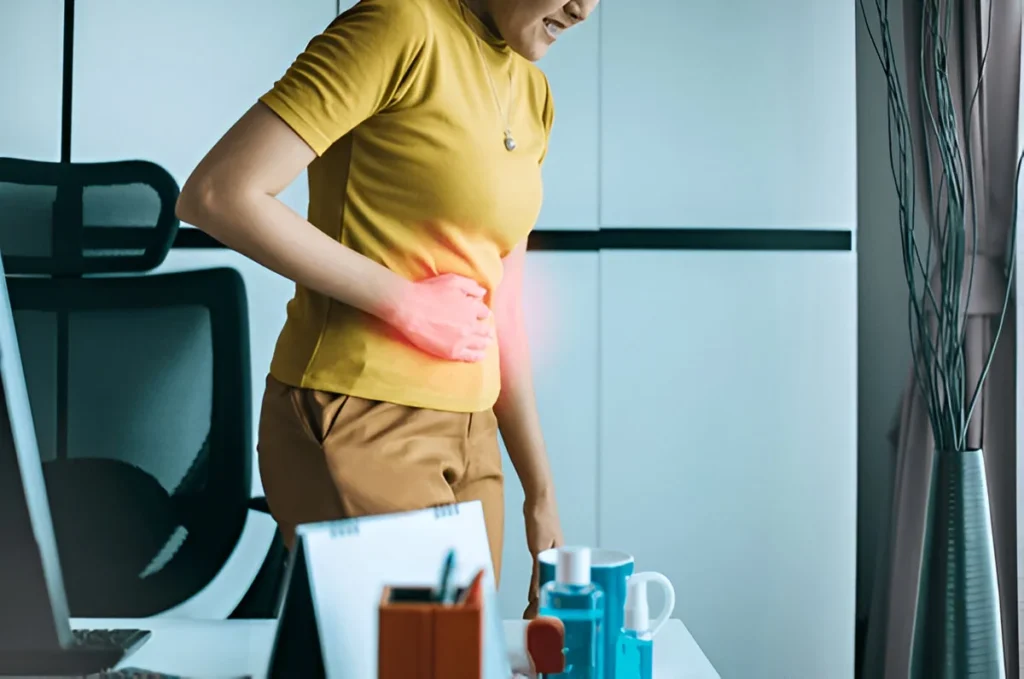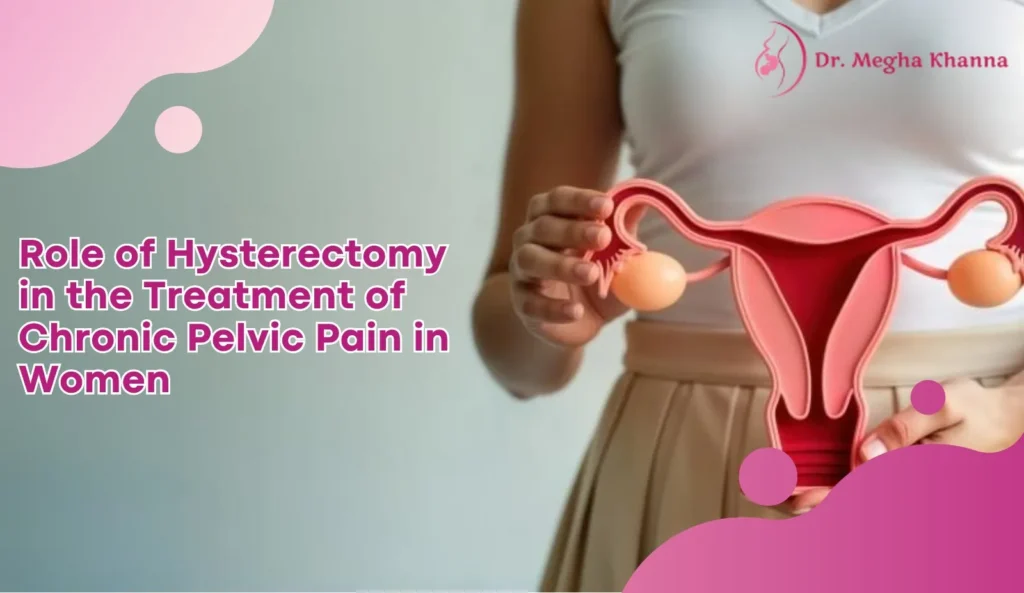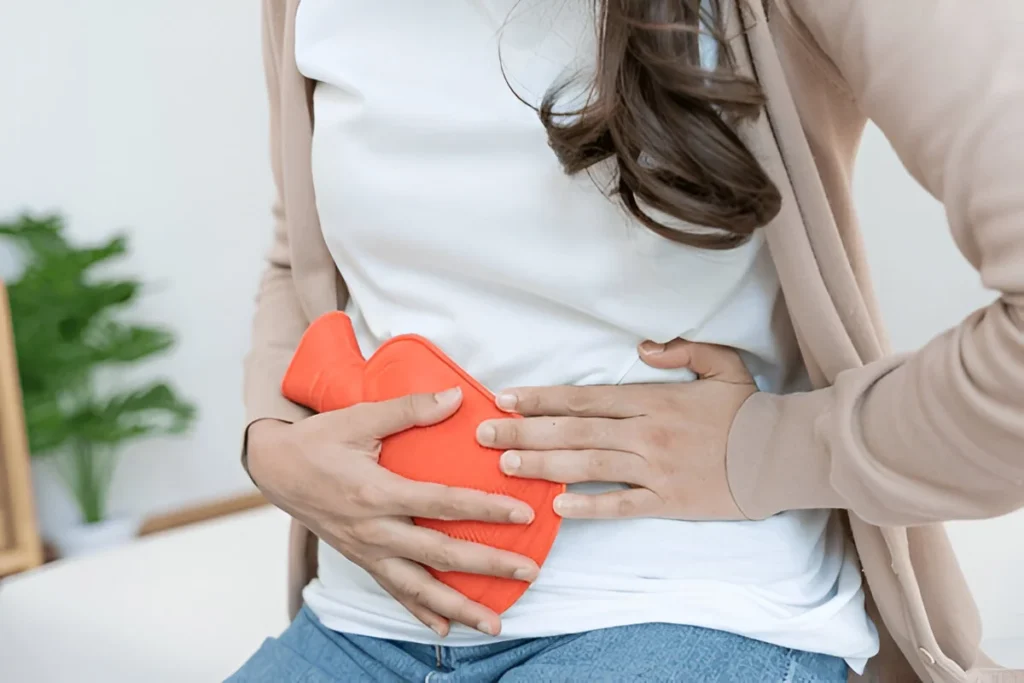-
Ganesh Talkies, Kolkata
Ganesh Talkies, Kolkata

Admin
28.07.2025
Hello Reader! Welcome to the blog page of Dr. Megha Khanna, one of the best lady gynecologist in Kolkata. When couples face difficulties in conceiving, one of the most common dilemmas they encounter is choosing between IUI vs IVF. Both are highly effective fertility treatments, but their procedures, costs, success rates, and suitability vary significantly. As the best lady gynecologist in Kolkata, I’ve helped numerous couples understand the differences and choose the right option based on their unique reproductive needs. In this blog, let’s dive deep into the comparison of IUI vs IVF and help you make an informed decision. Understanding IUI and IVF: Basic OverviewWhat is IUI (Intrauterine Insemination)?What is IVF (In Vitro Fertilization)?IUI vs IVF: Key DifferencesWhen to Choose IUIWhen to Choose IVFIUI vs IVF: Emotional and Financial AspectsWhat factors make IUI vs IVF more suitable for specific fertility issues?Factors Making IUI More Suitable:Factors Making IVF More Suitable:How do IUI vs IVF differ in success rates for different age groups?Summary TableHow does age shift the suitability between IUI and IVF?What are the potential risks and side effects of IUI vs IVF?IUI Risks and Side Effects:IVF Risks and Side Effects:Why is infection risk generally lower in IUI compared to IVF?FAQ1. What is the main difference between IUI and IVF?2. Who is a good candidate for IUI?3. When should IVF be considered over IUI?4. Which has a higher success rate: IUI or IVF?5. Is IUI or IVF more affordable?Final Thoughts: IUI vs IVF – Personalization is KeyStill Confused About IUI vs IVF? Let’s Talk. Understanding IUI and IVF: Basic Overview What is IUI (Intrauterine Insemination)? IUI is a less invasive and more affordable fertility treatment. In this procedure, specially washed and concentrated sperm are directly placed into the uterus during ovulation, increasing the chances of fertilization. Ideal for: Unexplained infertility Mild male factor infertility Cervical issues Single women or same-sex couples using donor sperm What is IVF (In Vitro Fertilization)? IVF is a more advanced and comprehensive fertility treatment where eggs are retrieved from the ovaries and fertilized with sperm in a laboratory. The resulting embryo is then implanted into the uterus. Ideal for: Blocked or damaged fallopian tubes Severe male infertility Endometriosis Advanced maternal age Failed IUI cycles IUI vs IVF: Key Differences AspectIUIIVFProcedureSperm placed directly into uterusEgg retrieval, lab fertilization, embryo transferInvasivenessMinimally invasiveMore invasiveCostLowerHigherSuccess Rate10–20% per cycle40–60% per cycle (varies with age and condition)Time to PregnancyMay need multiple...

Admins
25.07.2025
Pelvic Pain in Women can stem from several causes—learn about the symptoms, when to seek help, and insights from a reputed gynecologist. Understanding Pelvic Pain in Women: A Health Concern That Needs Attention Pelvic pain is one of the most commonly misunderstood health concerns among women. Often dismissed as “normal period cramps” or mistaken for gastrointestinal issues, Pelvic Pain in Women can be a sign of something much deeper—sometimes chronic, sometimes urgent. But how do you differentiate what’s typical from what’s a red flag? Understanding Pelvic Pain in Women: A Health Concern That Needs AttentionWhy It’s Crucial to Listen to Your BodyCommon Symptoms of Pelvic Pain in WomenPotential Causes Behind Pelvic PainGynecological CausesUrological CausesGastrointestinal CausesMusculoskeletal and Neurological CausesWhen Should You Be Concerned?What to Expect During DiagnosisHow Is Pelvic Pain Treated?The Emotional Toll of Pelvic PainAddressing Pelvic Pain in Women with AwarenessFAQs on Pelvic Pain in WomenDon’t Ignore the Signs This article offers a comprehensive breakdown of what pelvic pain means, possible underlying causes, and most importantly—what symptoms you shouldn’t ignore. Why It’s Crucial to Listen to Your Body Women's bodies are intricate systems, and pelvic pain isn’t always a standalone symptom. It often points to underlying conditions that could range from gynecological to musculoskeletal to gastrointestinal issues. The earlier you recognize these signs, the faster you can get the help you need. Common Symptoms of Pelvic Pain in Women Not all pelvic pain is created equal. Some types are dull and persistent; others are sharp and sudden. Here’s a breakdown of symptoms that should raise concern: Persistent cramping or aching pain in the lower abdomen Pain during menstruation that worsens over time Discomfort during sexual intercourse Pain while urinating or during bowel movements Sharp, stabbing sensations that come and go Lower back pain accompanying abdominal pain Sudden onset of severe pelvic pain These symptoms may come alone or in combination. It's important to track the duration, intensity, and frequency of pain and how it affects your daily life. Potential Causes Behind Pelvic Pain The reasons behind Pelvic Pain in Women vary widely depending on age, health history, and other symptoms. Some common causes include: Gynecological Causes Endometriosis: Tissue similar to the uterine lining grows outside the uterus. Fibroids: Non-cancerous growths in or on the uterus. Pelvic Inflammatory Disease (PID): Often caused by untreated STIs. Ovarian cysts or torsion: Can cause sudden, severe pain. Menstrual disorders: Painful periods (dysmenorrhea) or irregular...

Admin
23.07.2025
Hello Reader! Welcome to the blog page of Dr. Megha Khanna, one of the best lady gynecologist in Kolkata. Chronic pelvic pain in women is a common yet complex condition that affects millions globally. It often disrupts daily life, hampers productivity, and severely impacts emotional well-being. As one of the best gynecologists in Kolkata, I have treated countless women grappling with persistent pelvic discomfort. One of the treatment options that is often considered in severe and unresponsive cases is hysterectomy—the surgical removal of the uterus. But is hysterectomy always the answer? Let’s explore the role of hysterectomy in managing pelvic pain in women, its benefits, risks, and when it’s truly warranted. What is Chronic Pelvic Pain?Common Causes of Chronic Pelvic Pain in WomenWhen is Hysterectomy Considered?Types of HysterectomyBenefits of Hysterectomy for Chronic Pelvic PainRisks and ConsiderationsAlternatives to Hysterectomy1. What is the role of hysterectomy in treating chronic pelvic pain in women?2. Is hysterectomy always necessary for pelvic pain in women?3. Can pelvic pain persist after hysterectomy?4. What are the risks of undergoing a hysterectomy for pelvic pain?5. Who is the ideal candidate for hysterectomy to treat pelvic pain? What is Chronic Pelvic Pain? Chronic pelvic pain is defined as pain in the lower abdomen or pelvis that lasts for six months or longer. It may be: Constant or intermittent Mild to severe Related or unrelated to menstruation or intercourse This condition is not just a symptom but can be a diagnosis in itself. As the best gynecologist in Kolkata, I always emphasize a thorough evaluation before jumping to conclusions. Common Causes of Chronic Pelvic Pain in Women Understanding the root cause is essential. Some of the most common conditions causing pelvic pain in women include: Endometriosis Adenomyosis Uterine fibroids Pelvic inflammatory disease (PID) Interstitial cystitis Irritable bowel syndrome (IBS) Pelvic floor dysfunction In some cases, no identifiable cause is found, complicating the treatment strategy further. When is Hysterectomy Considered? A hysterectomy is usually not the first line of treatment. However, it is considered when: All conservative treatments (painkillers, hormonal therapy, physical therapy) have failed. The patient has a diagnosed structural cause like large fibroids or adenomyosis. The pain is significantly affecting the woman’s quality of life. The woman does not wish to have future pregnancies. Being one of the best gynecologists in Kolkata, I always ensure that my patients fully understand the nature of the surgery, its permanence, and the...

Admins
16.07.2025
Painful periods can disrupt life, but are treatable with expert care. Learn why women experience cramps and how a reputed gynecologist can help. For many women, periods are an inevitable part of life—a monthly reminder of their body’s natural cycle. But for some, menstruation comes with an added burden: painful periods that make even the simplest tasks feel overwhelming. What Are Painful Periods?Why Do Some Women Experience More Pain Than Others?Excess ProstaglandinsUnderlying Medical ConditionsAge and Hormonal FluctuationsLifestyle FactorsWhen Should You See a Gynecologist?Effective Remedies to Manage Painful PeriodsLifestyle ModificationsHome RemediesMedical TreatmentsHow to Deal With Painful Periods NaturallyAcupuncture and AcupressureDietary ChangesMind-Body TechniquesFAQs About Painful PeriodsTake Charge of Your Menstrual Health With the Right Care If you’ve ever found yourself curled up in bed with heating pads or reaching for painkillers every month, you’re not alone. It’s estimated that nearly 70% of women experience menstrual cramps at some point in their lives. But why do some women have more severe pain than others? And when should you seek help? Let’s dive into the causes, symptoms, and remedies for painful periods to help you understand your body better. What Are Painful Periods? Painful periods, also called dysmenorrhea, refer to cramping pain in the lower abdomen during menstruation. These cramps occur because of uterine muscle contractions triggered by hormone-like substances called prostaglandins. There are two main types of dysmenorrhea: Primary Dysmenorrhea: This is the most common type and is not linked to any specific health condition. It often starts in the teen years and lessens with age or after childbirth. Secondary Dysmenorrhea: This happens due to underlying medical conditions like endometriosis or fibroids and typically worsens over time. Why Do Some Women Experience More Pain Than Others? While mild cramps are normal, some women experience debilitating pain that affects work, studies, and social life. The reasons for this vary: Excess Prostaglandins High levels of prostaglandins lead to stronger uterine contractions. These contractions can compress blood vessels and reduce oxygen supply, causing pain. Underlying Medical Conditions Endometriosis: Tissue similar to the uterine lining grows outside the uterus, causing severe pain. Fibroids: Non-cancerous growths in the uterus can increase cramping and bleeding. Adenomyosis: The uterine lining grows into the muscle wall of the uterus, leading to heavy, painful periods. Pelvic Inflammatory Disease (PID): Infection in reproductive organs can cause long-lasting pelvic pain. Age and Hormonal Fluctuations Teenagers and women under 30 often have higher prostaglandin levels....